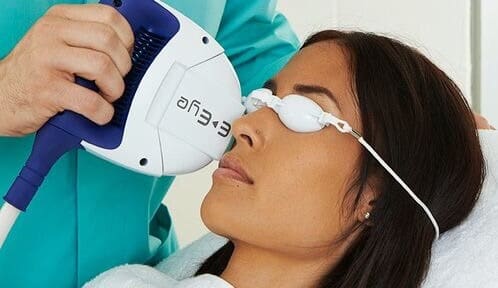IDK What is IPL - How One Discovery Has Revolutionised Dry Eye Treatment
 Dry eye disease is extremely common in society today. Symptoms like gritty, burning, stinging or even watery eyes can all be a result of dry eye disease. But now, with technological advances, many people no longer have to suffer with dry eyes.
Dry eye disease is extremely common in society today. Symptoms like gritty, burning, stinging or even watery eyes can all be a result of dry eye disease. But now, with technological advances, many people no longer have to suffer with dry eyes.
One common cause of the dry eyes is a lack of oil in the tears, meaning they will evaporate off the surface of the eye too quickly. The glands controlling the production of this oil are called meibomian glands and are found in the eyelids. When functioning properly, the force of an average blink is enough to produce oil from these glands. Unfortunately, medication, the environment and ageing can all cause these glands to stop working. This is where IPL comes in!
IPL stands for Intense Pulsed Light. IPL was originally used in dermatology for treatment of rosacea, acne and other skin conditions. Patients of the original IPL treatment started noticing a big improvement in their dry eyes. So, after a whole lot of research, it was discovered that IPL on the eyelids actually stimulated the glands to improve their oil production. It was also found to seal off abberant blood vessels in patients with rosacea to reduce redness and irritation. Unlike artificial tears, IPL treats the root cause of the dry eye disease.
So what can you expect from treatment with IPL? Most patients will need at least four sessions with the light, seperated by 2 to 4 weeks. Pads to protect the eyes are applied and a gel is used to distribute the light over the eyelid. Approximately 5-6 pulses of light are applied to each eyelid. After treatment the optometrist massages and expresses the glands to make the oil run smoothly and to ensure nothing is obstructing their flow. Most people find a good result after around 3 sessions, although some lucky patients find their eyes feeling a lot more comfortable after only one or two. So if you’ve noticed your eyes are scratchy, gritty, itchy or watering, or if you’ve tried every eye drop under the sun; speak to your optometrist to find out if IPL is the right treatment for you.
